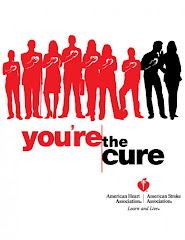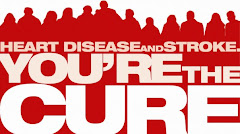The following is a published letter to the editor which appeared in The Southern on May 20 and was written by Illinois advocate and survivor David Melby.
When the Smoke Free Illinois Act went into effect in 2008, Illinois became the 22nd state to protect workers, patrons and visitors in all its businesses and public places from the health risks of secondhand smoke. According to the Centers for Disease Control, Illinois is now one of 25 states and the District of Columbia to have comprehensive, statewide smoking bans which prohibit smoking in public places, establishments such as bars and restaurants, as well as all other workplaces, including casinos. Eighteen more states have implemented statewide smoking restrictions with some exemptions.
The Illinois House of Representatives recently passed HB 1965, which would permit smoking in Illinois casinos if the nearest state allows it. The CDC said that the proposed law would make Illinois first nationwide to weaken a recently enacted, comprehensive, statewide smoke-free law by exempting casinos. Once again, the eyes of the country are watching Illinois government at work. Illinois has received a high level of visibility in recent years. Most of that visibility has not reflected well on our state. If this legislation is enacted into law, Illinois will once again be in the national spotlight for all of the wrong reasons, while polls show that an overwhelming majority of Illinoisans do not want their smoke-free protections weakened.
Maintaining a commitment to a comprehensive, Smoke Free Illinois is good for Illinois and all of its citizens for a variety of reasons, including the following:
Smoke Free Illinois results in tremendous public health benefits. In the first two years after implementation, the Illinois Department of Public Health estimates that over 30,000 hospitalizations for heart disease alone were prevented. When combined with similar statistics for cancer and other lung diseases, the public health benefits are staggering. According to the American Heart Association, cardiovascular disease is the number one cause of death in America, and even second-hand smoke increases the risk of heart attack by 30 percent.
Smoke Free Illinois makes good financial sense. According to IDPH, because the average cost of heart disease hospital admissions is so high ($39,000), the admissions prevented in the first two years follow-ing implementation of Smoke Free Illinois resulted in a healthcare cost savings of almost $1.2 Billion!
Smoke Free Illinois is good for business. An independent, random sample survey of Illinois casino gamblers, commissioned by the American Lung Association, was conducted between April 27 and May 9. It found that 85 percent of the 401 respondents who had visited an Illinois casino at least once during the last 12 months reported that they either preferred to visit a smoke-free casino or said it did not matter. Survey results indicate that the top six reasons for reducing the number of casino visits in Illinois were all economic, with the top two by a large margin being the increased cost of gasoline and the increased cost of living. Quality of the out-of-state competition and the Illinois tax rate on casino revenue were offered as additional reasons for declining Illinois casino revenues.
Another important business benefit of Smoke Free Illinois is reduced health care costs. The U.S. De-partment of Health and Human Services reports that businesses face additional costs of about $1,300 per year for each employee who smokes, because of higher health insurance claims and costs, plus main-tenance and cleaning costs for carpet, furniture and drapes. This business cost analysis does not appear to even include the additional costs for non-smoking employees as the result of exposure to second-hand smoke.
Smoke Free Illinois is good for Illinois because all workers deserve to be protected from second-hand smoke, including those working in casinos. In a recent open letter to legislators and the media, Buffy McKinney of Cahokia, Illinois wrote about her mother, Cheryl Rose, who worked in a casino for more than 20 years. Although she never smoked and took care of her health, in 2008, she was diagnosed with inoperable Stage 4 Lung Cancer, in all probability the result of years of exposure to secondhand smoke. Buffy asks in her letter, "Have you ever had to hold a parent in your arms as they take their last breath at the young age of 62? - And all of this could have been prevented through a comprehensive clean air law!"
Let's not backtrack on our commitment to provide a smoke-free work environment for everyone in Illinois. Please call your state senator's office to register your sentiments regarding this unpopular and potentially harmful legislation. Urge your Senator to vote No on HB 1965 and any similar legislation that might be sponsored in the foreseeable future.
DAVID J. MELBY of Carterville is a member of the American Heart Association's Illinois Advocacy Committee.
Monday, May 23, 2011
Wednesday, May 18, 2011
Take Action to Remove Barriers to Helping Smokers Quit
Tobacco use is a top preventable cause of death in the U.S. Most smokers say they want to quit - yet only 5 percent are successful. Often the high-cost of routine assessment and effective treatments acts as a barrier for a smoker who is serious about quitting for good. Senate Bill 673 lowers this barrier by requiring that up to $500.00 annually in smoking cessation programs be covered by private insurance. The coverage can, in turn, lower the overall smoking-related healthcare costs, which cost Illinois taxpayers billions of dollars. (Here is the link for more information on SB 673)
Please take a moment to contact your representative:
Ask your Representative to Help Smokers Quit by supporting SB 673!
Tobacco cessation programs have proved to be both clinically effective and cost effective. Positive outcomes from tobacco cessation programs can be considered a return on investment for smoking cessation with overall money saved as a result of taking on this prevention intervention.
Ask your Representative to Remove Barriers to Helping Smokers Quit and support SB 673
Thank you for continuing to support our advocacy efforts!
Please take a moment to contact your representative:
Ask your Representative to Help Smokers Quit by supporting SB 673!
Tobacco cessation programs have proved to be both clinically effective and cost effective. Positive outcomes from tobacco cessation programs can be considered a return on investment for smoking cessation with overall money saved as a result of taking on this prevention intervention.
SB 673 would mandate a health plan to offer a maximum of $500 in coverage annually for a tobacco use cessation program for an enrollee who is 18 years of age or older. The following therapies would be covered:
- Behavior modification support such as counseling, support groups, monitoring and education
- Over-the-counter and prescription nicotine replacement treatments and other aids approved by the FDA for smoking cessation
- Pharmacological medications
Ask your Representative to Remove Barriers to Helping Smokers Quit and support SB 673
Thank you for continuing to support our advocacy efforts!
Friday, May 13, 2011
Eat Well, Live Well, Let’s Move!
Early Bird Registration Ends May 1st!
Northwestern University, the CDC, the American Heart Association, the American Medical Association, the Chicagoland Chamber of Commerce, the Chicago Department of Public Health and the Midwest Business Group on Health have joined forces with Building Healthier Communities in this Eat Well, Live Well, Let’s Move! national conference to make it a powerful educational and networking event. Eat Well, Live Well, Let’s Move! will be one of the first of its kind in terms of a public, private and academic development collaboration. By bringing these partners together, this conference will address our major public health challenges and present solutions in unprecedented ways.
Participants will get out of their seats with activities and interactive sessions, and the fast pace will make it the ultimate networking opportunity. The event will be punctuated with fresh, innovative and tasty meals and lively breaks.
WHEN: June 8- 9, 2011
WHERE: Northwestern University’s Feinberg School of Medicine in Chicago, IL
WHAT: This year’s conference will examine the public health, academic and business research on and implications of:
· Food Psychology
· Sodium
· Media Literacy & Food Marketing
· Social Entrepreneurship & Health
Nationally-Acclaimed Speakers from Business, Public Health, and Academia
Larry Appel, MD, MPH, Professor of Medicine at Johns Hopkins School of Medicine and Bloomberg School of Public Health
Shahram Heshmat, PhD, Public Health, University of Illinois Springfield, Public Affairs and Administration
Jim Painter, PhD, RD, Chairman, School of Family and Consumer Sciences at Eastern IL University
Margo Wootan, ScD, Director of Nutrition Policy at Center for Science and the Public Interest John Agwunobi, MD, Senior Vice President and President for the Professional Services Division for Wal-Mart
Who should attend?
This conference will bring together representatives from public health, academia, and the business community. A combination of interdisciplinary panels and breakouts will enhance collaboration among public, private and academic organizations at the local, regional and national level.
Please visit http://www.healthierchicago.org/ for more information.
Monday, May 9, 2011
“My mom worked in a smoke-filled casino and paid with her life!”
Thursday, May 5, 2011
[The following was posted on Capitol Fax.com by an American Heart Association advocate]
To Illinois legislators:
I would like to tell you my mother’s story. My mother, Cheryl Rose, was a mentor to all she came in contact with, always giving of herself. She was a hero to many and even in death she is helping others.
She worked in the Casino industry for over 20 years. She never smoked and worked out regularly. Yet she was diagnosed with inoperable Stage 4 Lung Cancer in 2008. We were shocked. The only cause we and the doctors could think of was the secondhand smoke at work. She lost her hair, suffered the indignity of terrible facial sores, the weight loss, the loss of her insurance and eventually the loss of her life.
Have you ever had to hold a parent in your arms as they take their last breath at the young age of 62? What would you do if your own children had to go through this with you? And all this could have been prevented through a comprehensive clean air law!
I am asking you to take a stand with me and my mother and to protect the citizens who elected you and trusted you with their lives.
Sincerely,
Buffy McKinney
Cahokia, IL
[The following was posted on Capitol Fax.com by an American Heart Association advocate]
To Illinois legislators:
I would like to tell you my mother’s story. My mother, Cheryl Rose, was a mentor to all she came in contact with, always giving of herself. She was a hero to many and even in death she is helping others.
She worked in the Casino industry for over 20 years. She never smoked and worked out regularly. Yet she was diagnosed with inoperable Stage 4 Lung Cancer in 2008. We were shocked. The only cause we and the doctors could think of was the secondhand smoke at work. She lost her hair, suffered the indignity of terrible facial sores, the weight loss, the loss of her insurance and eventually the loss of her life.
Have you ever had to hold a parent in your arms as they take their last breath at the young age of 62? What would you do if your own children had to go through this with you? And all this could have been prevented through a comprehensive clean air law!
I am asking you to take a stand with me and my mother and to protect the citizens who elected you and trusted you with their lives.
Sincerely,
Buffy McKinney
Cahokia, IL
Subscribe to:
Posts (Atom)









